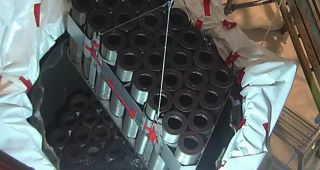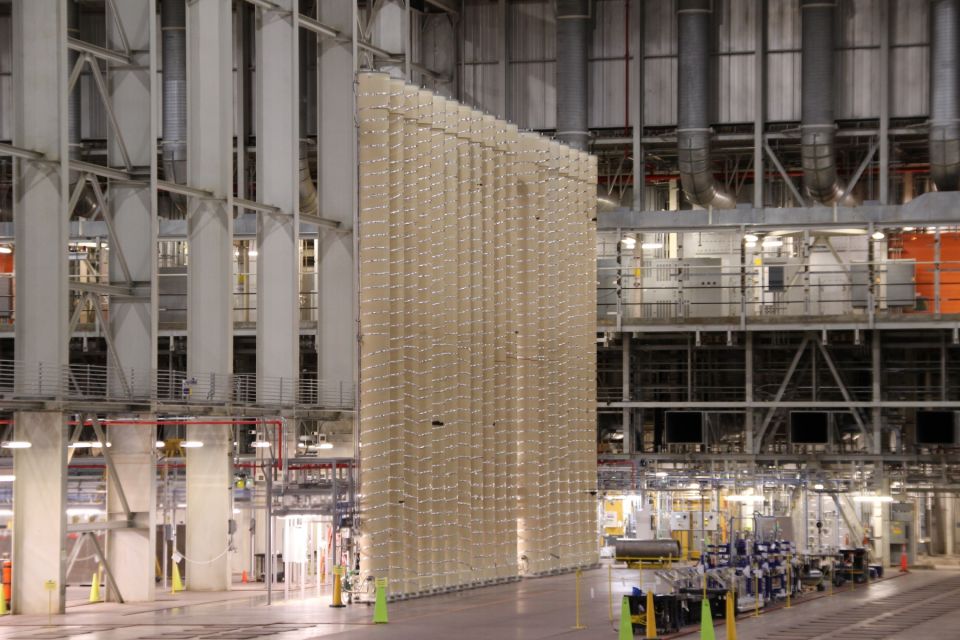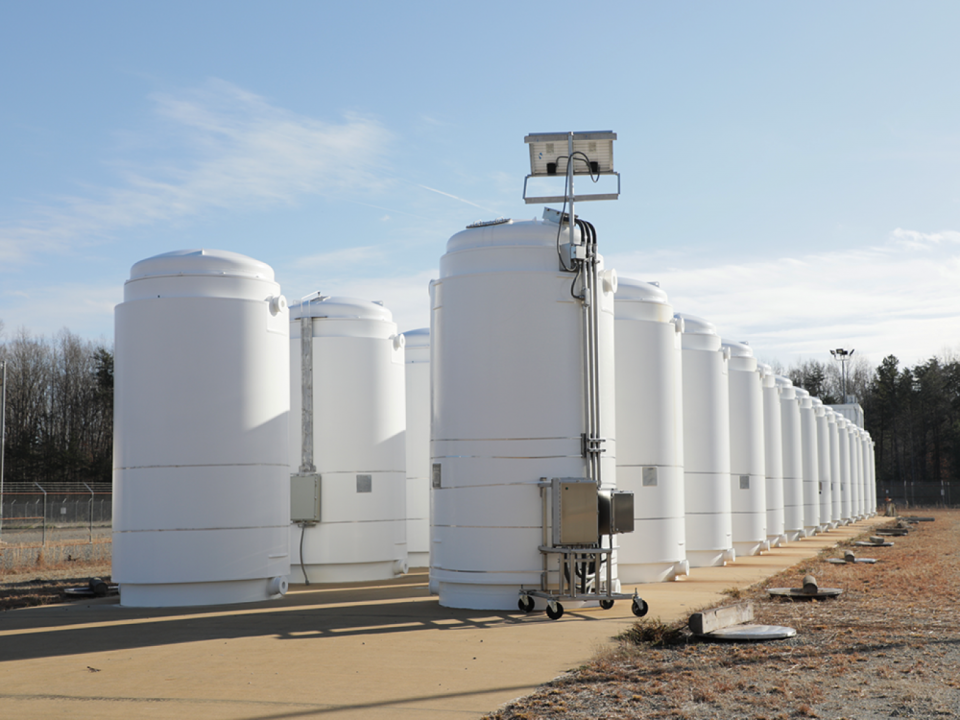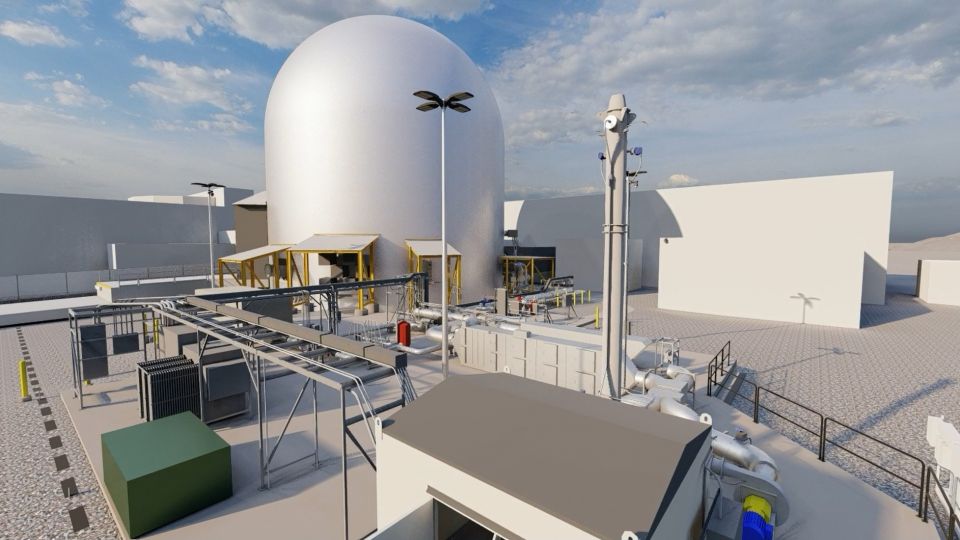DOE’s six LEU contracts add two laser enrichers to the HALEU lineup
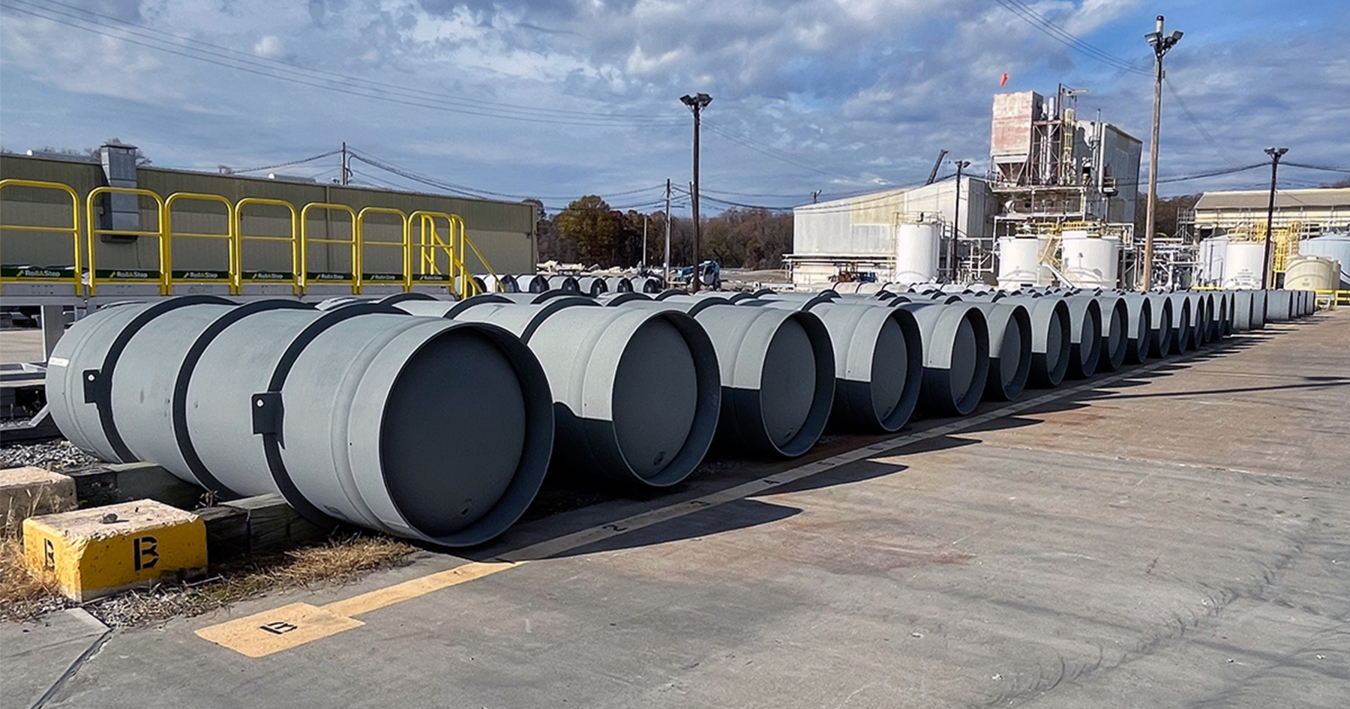
The Department of Energy announced yesterday the six companies that it has selected to supply low-enriched uranium (LEU) from new domestic enrichment sources under future contracts for up to 10 years. The contract recipients are: Centrus Energy’s American Centrifuge Operating, General Matter, Global Laser Enrichment (GLE), Laser Isotope Separation Technologies (LIS Technologies), Orano Federal Services, and Urenco USA’s Louisiana Energy Services.
The objective: Through the contracts, the DOE will acquire LEU generated by new domestic sources—either at entirely new enrichment facilities or from projects that expand their existing capacity. All contracts will last for up to 10 years with each awardee receiving a minimum contract of $2 million and a total cumulative contract ceiling of $3.4 billion, as described in a request for proposals released in June. The DOE’s contracts for high-assay low-enriched uranium (HALEU) announced in October use a similar contracting structure.
The DOE is investing in new domestic production capacity for LEU (and HALEU) to ensure the availability of an adequate fuel supply from trusted sources to maintain the current fleet of U.S. reactors and future power reactors, both in the United States and abroad. The contracts are designed to incentivize new enrichment capacity build-out to replace Russian-supplied LEU. A Russian uranium ban signed into law in May 2024 allows temporary waivers for the import of Russian LEU through 2027.
“These contracts generated from this action will help spur the safe and responsible build-out of uranium enrichment capacity in the United States,” said principal deputy assistant secretary for nuclear energy Michael Goff. “We must increase our capacity to produce enriched uranium domestically to support the energy security and resilience of the nation.”
What can the companies offer? The DOE’s LEU contractors will use different technologies, and some are planning to produce HALEU as well.
- Centrus is operating a 16-machine HALEU enrichment demonstration cascade under contract with the DOE at its American Centrifuge plant in Piketon, Ohio, which was initially built to house over 11,000 centrifuges. Last month, the company announced additional investment in centrifuge manufacturing.
- General Matter, a start-up created this year by a team including former SpaceX engineer Scott Nolan as chief executive officer (as Reuters has reported), was named in October as one of the DOE’s HALEU contractors.
- GLE is demonstrating and hopes to commercialize Silex laser enrichment technology and announced earlier this year that it would not pursue a HALEU contract from the DOE, opting instead to focus on “its first commercial priority of establishing the Paducah Laser Enrichment Facility (PLEF) for production of natural-grade uranium hexafluoride (UF6).” GLE recently purchased land for that facility.
- LIS Technologies, a laser enrichment firm, recently announced that it has closed a $22 million funding round to support physical test work and test-loop demonstrations at the company’s secured facility in Oak Ridge, Tenn.
- Orano, which has tried before to bring its centrifuge technology to the United States, is planning to build an enrichment facility in Oak Ridge, Tenn. Hiring began for “Project Ike” in November.
- Urenco operates the only commercial LEU centrifuge enrichment facility in the United States today in Eunice, N.M. The company has announced expansion plans and is pursuing a license amendment allowing enrichment up to 10 percent U-235. Yesterday the Nuclear Regulatory Commission issued a “finding of no significant impact” on that amendment.
LEU, LEU+, and HALEU disambiguation: The DOE named four HALEU enrichment contractors in October—all of which have also been named to provide LEU: Centrus, General Matter, Orano, and Urenco. That’s not surprising, given that producing HALEU requires first producing LEU. In fact, most of the separative work units (SWUs) that go into producing HALEU are done in the earliest stages of enrichment.
The broadest definition of LEU includes all uranium enriched up to 20 percent fissile U-235. Today’s light water reactors are licensed to use LEU fuel enriched up to 5 percent, while HALEU can be defined as uranium enriched to between 5 and 20 percent. (The term LEU+ has emerged in recent years to describe uranium enriched to between 5 and 10 percent U-235.) While enrichment (and deconversion and fuel fabrication) of uranium up to 10 percent U-235 can be carried out in a Category III fuel cycle facility, uranium enriched between 10 and 20 percent U-235 must be handled in an NRC-licensed Category II or Category I facility.
Enrichers producing both LEU and HALEU under DOE contracts will have an incentive to minimize the footprint of their Category II facilities—which have more stringent licensing and security requirements—and are likely to consider separate, and separately licensed, facilities for HALEU above 10 percent enrichment.


